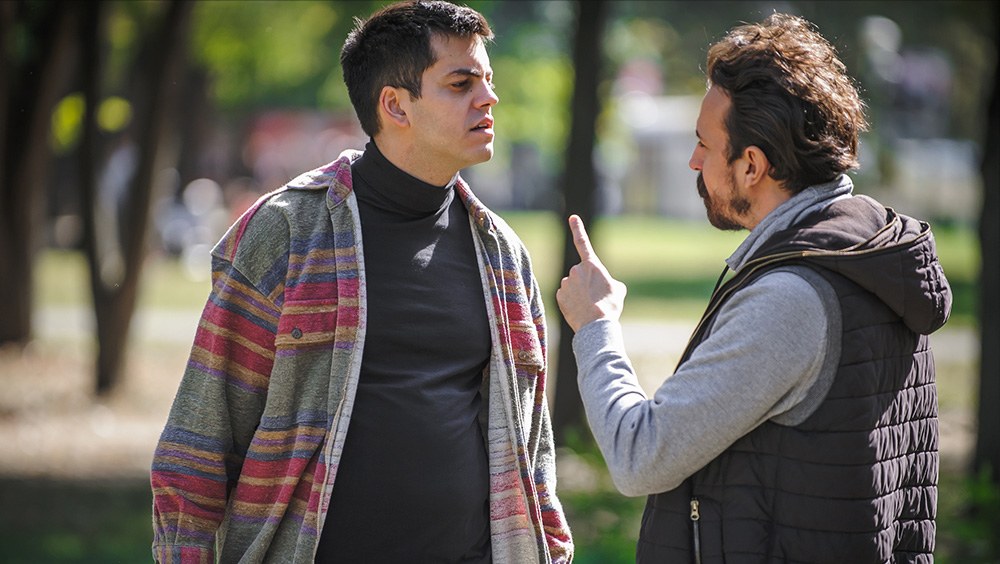

This phrase is often used as a joke, like saying “Them's fightin’ words” when someone insults your favorite sports team. But the legal definition is much more specific and serious.
Fighting words were first defined by the Supreme Court in Chaplinsky v. New Hampshire in 1942. In this case, the court said that fighting words are those that just by saying them can cause violence. It ruled that such words are not protected by the First Amendment as free speech.
Fighting words don’t have a true idea or message, the court said, so the need to keep order can outweigh the need to protect the speech.
Fighting words are not meant to continue a conversation or exchange ideas. They are intended to provoke a response beyond speech. They are intended to cause the recipient to get violent.
Using fighting words can result in criminal charges such as breach of the peace, disorderly conduct or harassment.
Courts decide if words are fighting words that are not protected by the First Amendment or offensive speech that is protected by the First Amendment by looking at the whole situation.
For example, fighting words generally mean words said to someone face-to-face in a way that the average person would react by punching the speaker.
Using curse words or using an angry tone alone are not enough to make an outburst fighting words. Using racial slurs may or may not be fighting words, depending on the context.
In weighing if something someone said is fighting words, courts will consider:
It is extra difficult to prove that yelling at police officers is fighting words. Officers are expected to show more restraint in the face of abuse than the average person.
Courts also look at the wording of the laws used to convict someone for fighting words to see if they align with the First Amendment. These laws – and whether the courts interpret them as OK by the First Amendment – have shifted since they were first created.
The concept of fighting words began in the early 1800s with laws to limit dueling. Virginia’s 1810 Anti-Dueling Act outlawed “all words which from their usual construction and common acceptation are considered as insults, and lead to violence and breach of the peace.”
Since the Supreme Court first OK’d fighting words as an exception to free speech in 1942, more decisions have clarified and limited the kinds of things that are considered fighting words.
For example, the Supreme Court in 1949 overturned the conviction of a man who greeted protesters of his racist, antisemitic speech with inflammatory language. The court did not consider whether the speech was fighting words, because it said that the Chicago law under which he was convicted in the first place was too broad. It would limit some speech that should be protected. The court said hateful or offensive speech is protected, and only speech that specifically provokes a listener into a face-to-face response is not protected.
The Supreme Court has also said that the First Amendment protects criticizing someone, including those with language that might be considered offensive.
In 1971, it ruled in the case of a man who wore a jacket with a curse word on it to court that offensive language itself is generally protected. It said having a curse word on a jacket is not a direct insult and doesn’t cause a violent reaction.
In three cases in the 1970s and ’80s, the court overturned convictions by saying that the laws under which they were made were too broad. A Georgia law had outlawed “abusive” language, while a New Orleans law criminalized “obscene or opprobrious (critical) language.” A Houston ordinance made it a crime to “assault, strike, or in any manner, oppose, molest, abuse, or interrupt any policeman in the execution of his duty.” The Supreme Court declared all these laws unconstitutional because they would punish people for some protected speech as well as fighting words.
In 1992, the Supreme Court struck down a St. Paul, Minn., ordinance against cross burning. The city said that the law tried to outlaw fighting words. The Supreme Court agreed that fighting words are not protected. But the court said that because the law was written in such a way as to only punish people who held a certain viewpoint about race and ethnicity, it was unconstitutional.
The Supreme Court has recently made it harder for some kinds of speech to be punished.
Some free speech experts think that the court could also make it harder for speech to be declared fighting words if the court heard a case today.
For now, courts will continue to weigh if speech is fighting words based on whether the words aim only to provoke a violent reaction.
This report is based on scholarship by Freedom Forum fellows and experts including David L. Hudson Jr. and First Amendment Specialist Kevin Goldberg.